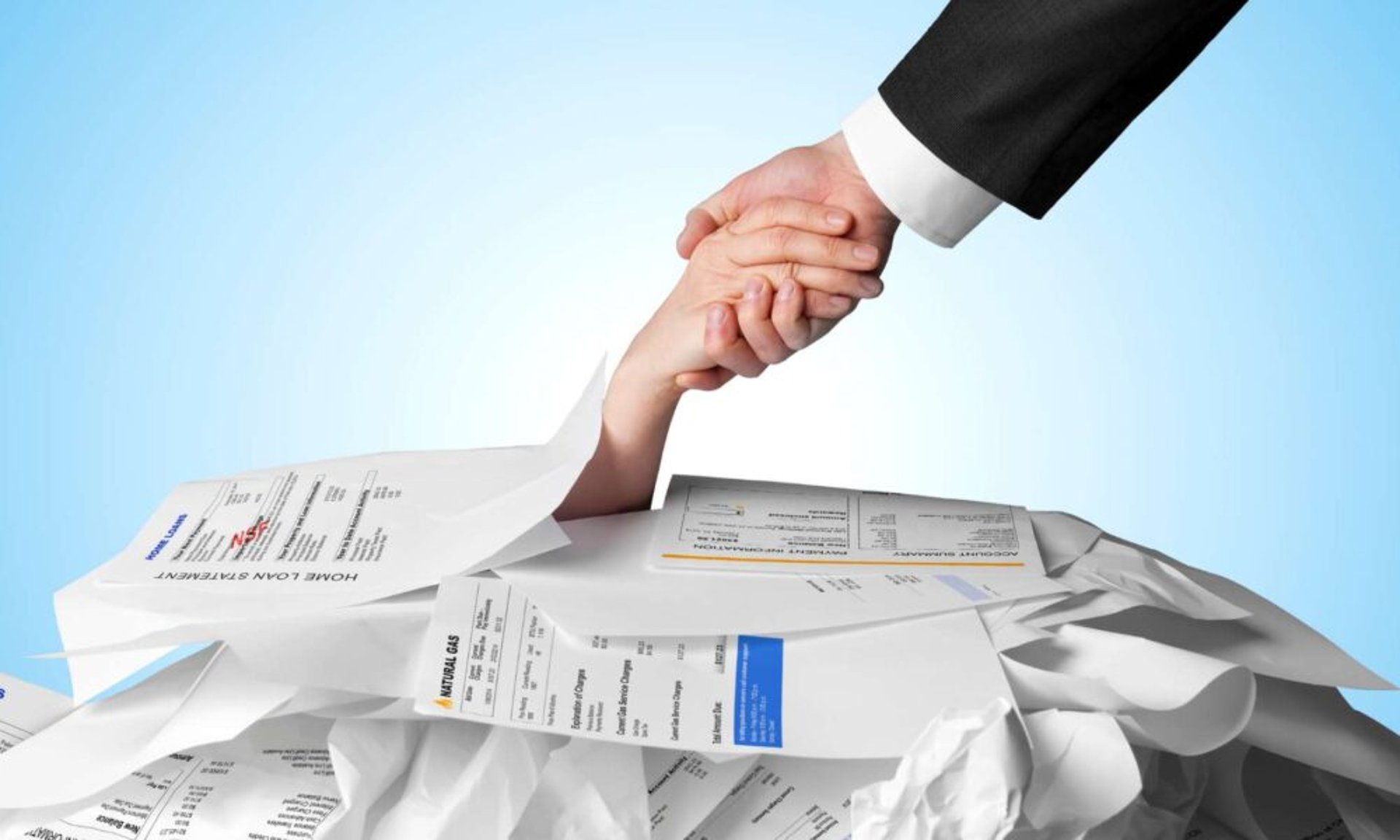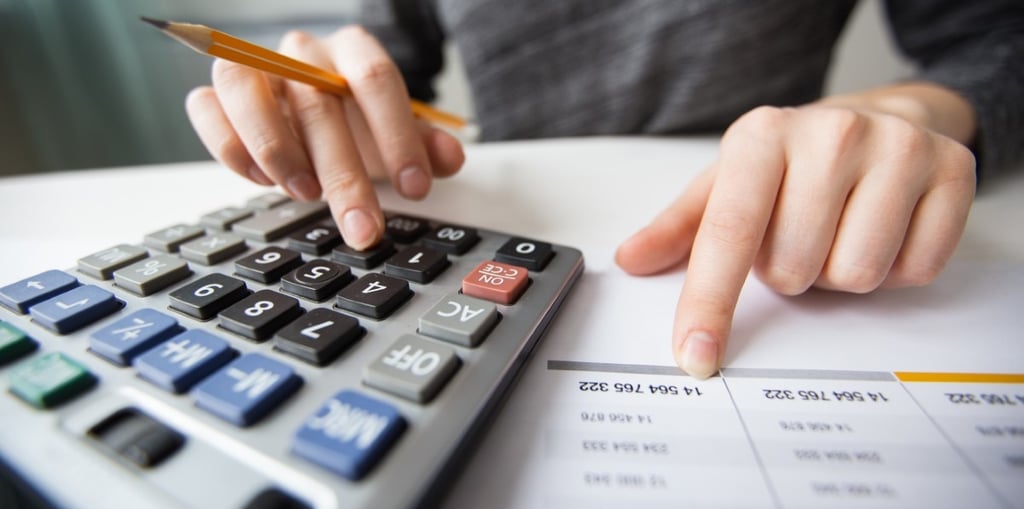
How to Get Out of Debt and Avoid Default: Your Guide to Financial Recovery
Introduction
Getting out of debt and avoiding default are crucial steps towards financial recovery. Millions worldwide struggle with debt, which, if poorly managed, can damage your credit score and limit future financial opportunities. This comprehensive guide provides practical strategies for debt management, including effective debt relief options and how to negotiate debt successfully.
✅ Understanding Debt and the Risk of Default
💳 What is Debt? A Clear Explanation
What is debt? Simply put, it's a financial obligation taken on when you acquire something without paying for it immediately. This includes the original amount borrowed (principal) plus extra costs like interest and fees. Understanding the nature of your debt is the first step in effective debt management.
Common Examples of Debt:
* Bank and payroll loans
* Credit cards
* Financing (mortgage and auto loans)
* Overdraft facilities
* Service providers and store credit
🚨 What is Default? Consequences and How to Avoid It
What is default? This happens when you fail to pay your debt by the agreed-upon deadline. The consequences of default can be severe, including high penalties and interest, credit restrictions that impact your ability to get loans, and a significantly damaged credit score. Learning how to avoid default is essential for your financial well-being.
👉 Important: Avoiding default is crucial for maintaining a good financial history and taking advantage of credit opportunities when needed.
🎯 Step-by-Step Guide: How to Get Out of Debt Effectively
✅ Step 1: Acknowledge Your Debt Situation and Take Control
The first step in how to get out of debt is to honestly acknowledge your current financial situation. Ignoring the problem will only make things worse in the long run.
Immediate Actions:
* List all your debts (creditor, amount owed, interest rate, term, and installments)
* Identify the types of debt (prioritize those with high interest rates for faster debt relief)
* Understand your current financial reality: income, fixed expenses, and variable expenses
✅ Step 2: Organize Your Finances by Creating a Budget
Effective budgeting for debt is essential for gaining control of your finances. A well-structured financial plan will show you where your money is going and where you can make adjustments to allocate more funds towards debt repayment.
How to Create a Personal Budget:
* Record all your monthly income (salary, extra income, investments)
* List all fixed expenses (rent, utilities, recurring bills)
* Itemize variable expenses (food, transportation, leisure)
* Reduce non-essential spending and reassess your financial priorities
* Allocate a specific monthly amount to pay off debt
👉 Tip: Utilize financial tracking apps like Mobills, Organizze, Minhas Economias, or GuiaBolso to simplify organization and gain better insights into your spending habits.
✅ Step 3: Prioritize Your Debt Repayment Strategy
If you have multiple debts, it's crucial to prioritize those with the highest interest rates, such as credit cards and overdraft facilities. This debt management strategy can save you significant money on interest over time.
Repayment Strategies:
* Avalanche Method: Focus on paying off debts with the highest interest rates first, while making minimum payments on others.
* Snowball Method: Pay off the smallest debts first for quick wins and motivation, then roll those payments into larger debts.
* Renegotiation: If your current payments are unsustainable, seek to negotiate debt with your creditors for more manageable terms (lower interest rates, extended repayment periods).
✅ Step 4: Intelligently Negotiate Your Debts with Creditors
Many financial institutions offer debt relief programs or are willing to negotiate debt with borrowers facing financial difficulties.
How to Conduct a Good Debt Negotiation:
* Contact the creditor before you fall into default to show your willingness to resolve the situation.
* Explain your financial situation honestly and propose a repayment amount that fits your budget.
* Evaluate proposals for interest rate reductions or longer repayment terms carefully.
* Request a detailed contract outlining the new debt terms before agreeing.
👉 Tip: Avoid agreeing to excessively long installment plans, as this can lead to paying more interest in the long run. Aim for the shortest realistic repayment period.
✅ Step 5: Consider Debt Consolidation for Easier Management
Debt consolidation is a strategy where you take out a new loan with a lower interest rate to pay off several smaller debts, consolidating them into a single, more manageable monthly payment.
Advantages of Debt Consolidation:
* Fewer monthly payments to track
* Potentially reduced interest rates, saving you money
* Simplified financial management
👉 Caution: Evaluate debt consolidation options carefully and ensure the new loan truly offers better terms and doesn't extend your repayment period significantly.
✅ Step 6: Increase Income and Reduce Spending to Pay Off Debt Faster
To get out of debt more quickly, it's often necessary to increase your income and aggressively reduce unnecessary expenses.
How to Increase Income:
* Seek extra income opportunities such as freelancing, part-time work, or selling unused items.
* Offer your skills for consulting or tutoring services.
How to Reduce Expenses:
* Avoid impulsive purchases and think carefully before buying anything non-essential.
* Switch to more economical brands for groceries and household items.
* Negotiate better rates for services like banking fees and telecommunications.
✅ Step 7: Build an Emergency Fund to Prevent Future Debt
Once you've achieved debt relief, focus on building an emergency fund equivalent to 3 to 6 months (ideally 6 to 12) of your essential monthly expenses. This financial safety net can prevent you from relying on expensive credit during unexpected events, helping you avoid future debt.
🚀 How to Avoid Future Indebtedness and Maintain Financial Health
✅ Step 1: Continuous Financial Planning for Long-Term Stability
Regularly monitor your finances and adjust your budget as needed. This ongoing financial planning is crucial for long-term financial health and preventing future debt accumulation.
✅ Step 2: Avoid Impulsive Purchases and Unnecessary Spending
Practice mindful spending and differentiate between needs and wants. Delaying purchases and evaluating their necessity can significantly reduce impulsive buying.
✅ Step 3: Use Credit Wisely to Avoid Future Debt
* Always pay your full credit card balance on time to avoid interest charges.
* Avoid taking out long installment loans for non-essential items.
* Prioritize paying in cash or debit to take advantage of potential discounts.
📊 The Importance of Your Credit Score and How to Improve It
Maintaining a good credit score is essential for accessing favorable terms on loans and credit in the future.
Tips to Improve Your Score:
* Pay all your bills on time consistently.
* Keep your credit card utilization low (use only a small portion of your available credit).
* Ensure your personal information with credit bureaus is up-to-date.
✅ Conclusion: Achieving Financial Health and Staying Out of Debt
Learning how to get out of debt and avoid default requires discipline, a well-thought-out plan, and determination. By following this guide and implementing effective debt management strategies, you will be well on your way to achieving financial recovery and building a secure financial future. Remember that consistent financial control is a lifelong habit that will protect you from chronic indebtedness.



